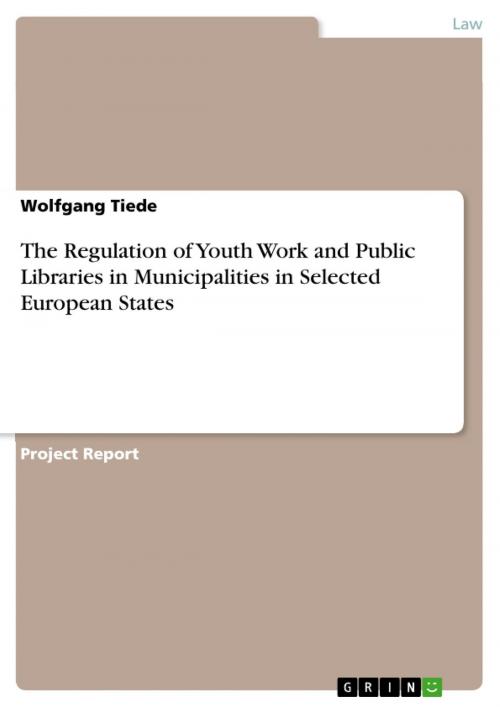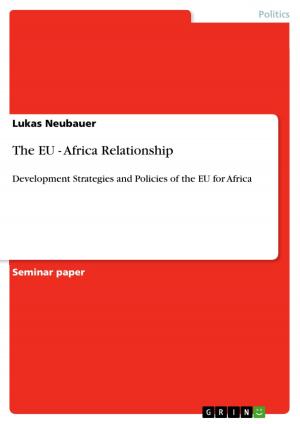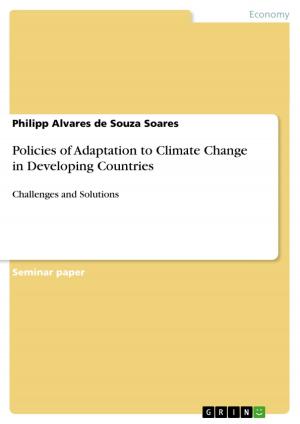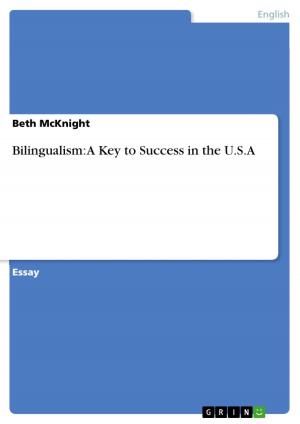The Regulation of Youth Work and Public Libraries in Municipalities in Selected European States
Nonfiction, Reference & Language, Law| Author: | Wolfgang Tiede | ISBN: | 9783640853649 |
| Publisher: | GRIN Publishing | Publication: | March 8, 2011 |
| Imprint: | GRIN Publishing | Language: | English |
| Author: | Wolfgang Tiede |
| ISBN: | 9783640853649 |
| Publisher: | GRIN Publishing |
| Publication: | March 8, 2011 |
| Imprint: | GRIN Publishing |
| Language: | English |
Project Report from the year 2007 in the subject Law - Miscellaneous, grade: keine, , language: English, abstract: An effective and democratic governance is one of the most challenging issues Russia is facing today. The complexity and multiplicity of the tasks a modern state has to deal with makes it impossible to provide an efficient public administration on a 'centralised base' - hence it is vitally important to guarantee the existence of local self-government and to create a transparent and workable legal framework for its performance. The rebirth of the local government in Russia and the beginning of its reform dates back to the early 1990s, when the country underwent economic and political restructuring. The Federal Law No. 131 passed in June, 2003 'On the General Organisational Principles of Local Self-Government in the Russian Federation' appeared to be the next crucial step and was expected to give more fiscal and managerial independence to municipalities. Local self-government has formally become a very widespread phenomenon and there are 24, 208 municipalities in Russia at the moment.1 However the goals of the reforms have not been achieved - local government institutions are still very weak and their participation in social and economic developments is very limited. There is an urgent need for new opportunities to improve this situation. A workable legal framework can be a key element in the development of the efficient self-government system. Two problems of municipal importance are the realisation of education, recreation and social work with children and youth at municipality (A.) and the public library service (B.): models of legal acts from European countries shall be described in order to transfer some of the solutions found in these countries. Thus, the Russian self-government can reach European standards.
Project Report from the year 2007 in the subject Law - Miscellaneous, grade: keine, , language: English, abstract: An effective and democratic governance is one of the most challenging issues Russia is facing today. The complexity and multiplicity of the tasks a modern state has to deal with makes it impossible to provide an efficient public administration on a 'centralised base' - hence it is vitally important to guarantee the existence of local self-government and to create a transparent and workable legal framework for its performance. The rebirth of the local government in Russia and the beginning of its reform dates back to the early 1990s, when the country underwent economic and political restructuring. The Federal Law No. 131 passed in June, 2003 'On the General Organisational Principles of Local Self-Government in the Russian Federation' appeared to be the next crucial step and was expected to give more fiscal and managerial independence to municipalities. Local self-government has formally become a very widespread phenomenon and there are 24, 208 municipalities in Russia at the moment.1 However the goals of the reforms have not been achieved - local government institutions are still very weak and their participation in social and economic developments is very limited. There is an urgent need for new opportunities to improve this situation. A workable legal framework can be a key element in the development of the efficient self-government system. Two problems of municipal importance are the realisation of education, recreation and social work with children and youth at municipality (A.) and the public library service (B.): models of legal acts from European countries shall be described in order to transfer some of the solutions found in these countries. Thus, the Russian self-government can reach European standards.















